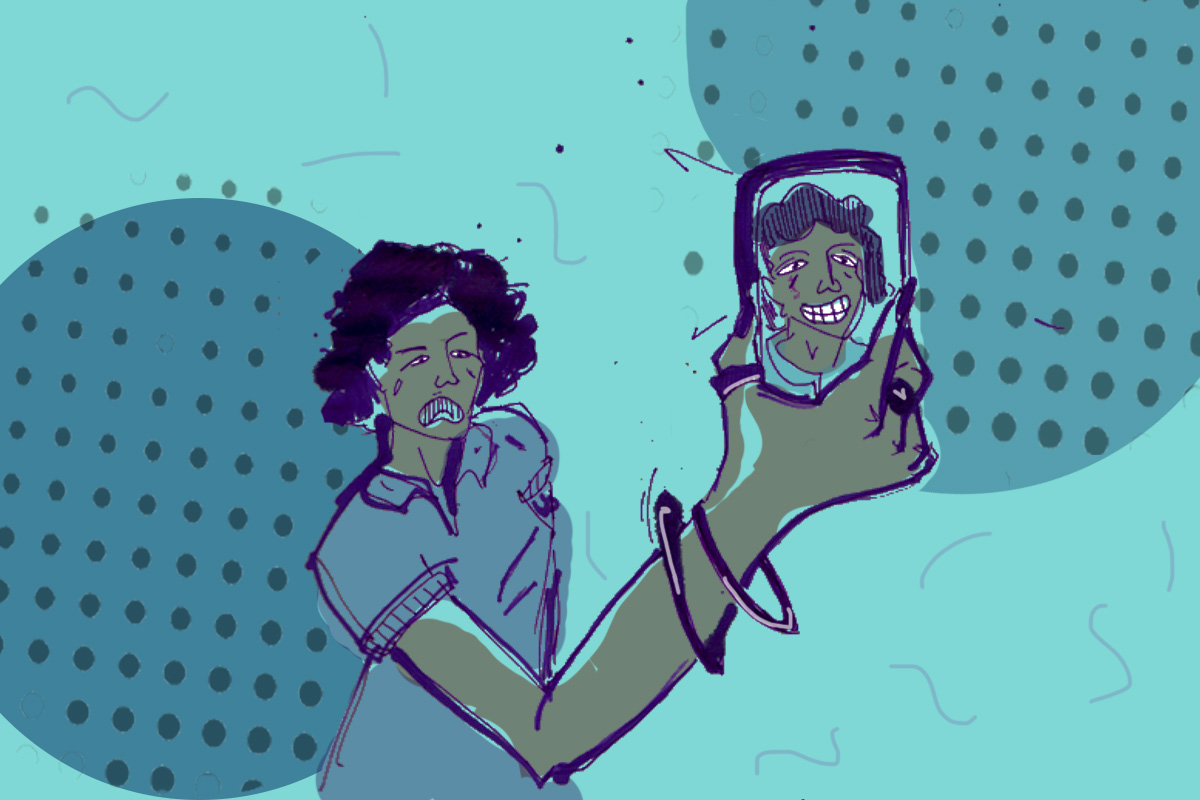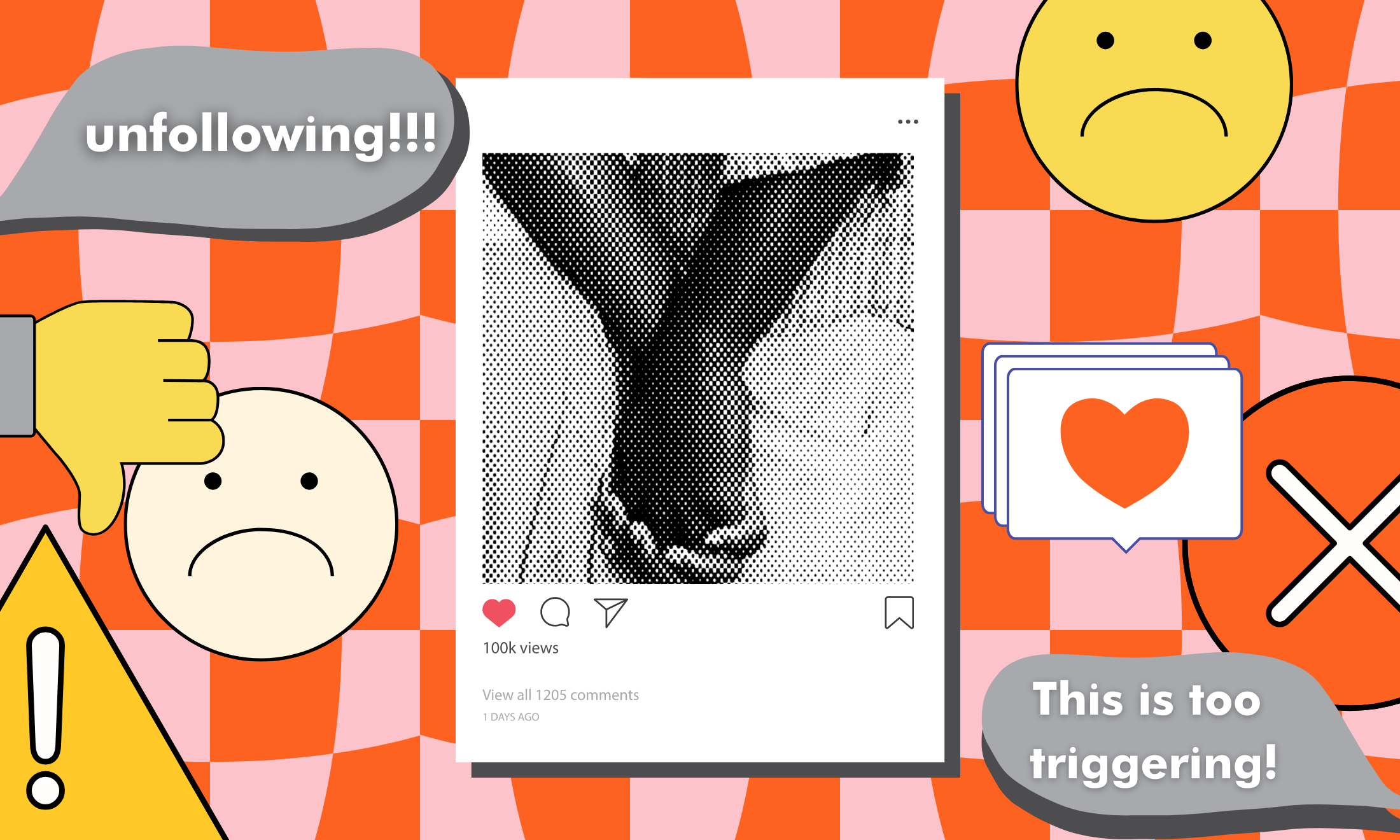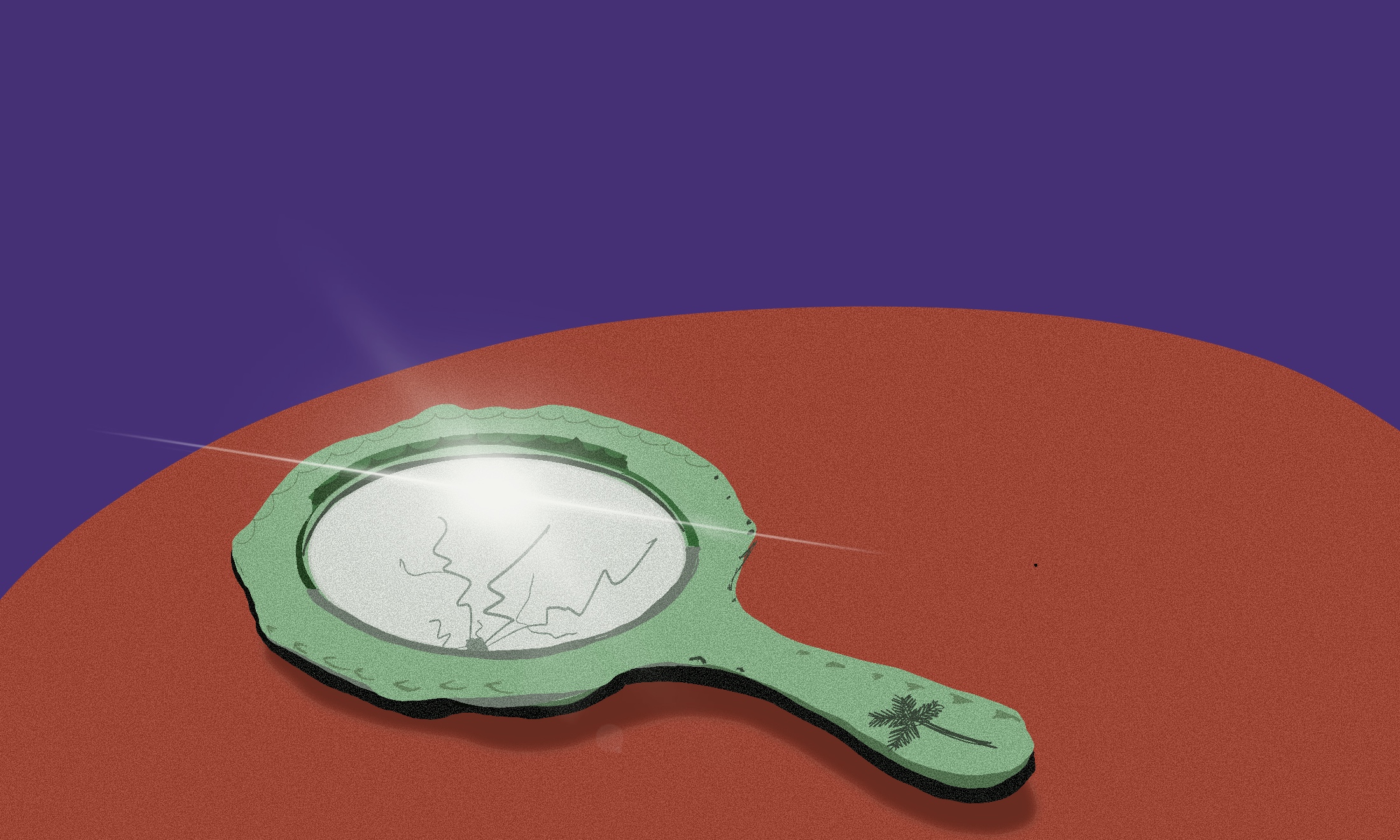
Can we stop shaming each other for being fake online and accept that social media is performative?
Nouf Alhimiary
20 Jun 2019
Illustration by Farnaz Zare
I’ve read many variations of the same article, shaming people online for not being “real” enough, I’m sure you have too. From celebrities facetuning their bodies and faces beyond recognition, down to regular Instagram folk overzealously editing their perceived imperfections out, or looking too much like one another, or pretending to be somewhere other than where they are, or even creating new influencers from digital art, everyone and anyone is susceptible to being fake in digital public space.
We’re understandably fed up with social media profiles not delivering what we want, and we chalk it up to them being fake instead. We’re especially likely to call out the inauthenticity of well-curated pictures online because as a society we’ve come to privilege a collective imaginary of the perfectly authentic self. I understand these frustrations, but I don’t quite agree that the source of our grievances is the unreality of online profiles and interactions. So, here it is, this is the case for being fake online.
Yes, oftentimes on the internet, most of what we see is indeed “fake”, staged, or at least curated, that much is true. However, my interest lies in analysing why we’re bothered by “fake” elements in online posts, more so than real life performative situations. From smalltalk and dress codes, or even wearing makeup to cover perceived imperfections, real-world social life contains many fabricated elements too.
I don’t think most people would be pleased to think of their Instagram or Twitter profiles as fantasy or performance. The word itself, “performance”, evokes an image of actors, scripts, symbols, drama, theatre and most importantly, an audience on the receiving end. Nobody goes out into the world self-identifying as a performer, we all like to think of ourselves as “real” and authentic. Yet, despite that desire, we venture into social life every day constantly editing our behavior and costuming to fit into different social contexts, for example you wouldn’t act the same at a family dinner as you would at a club night, each would entail different sets of behaviors.
“From small talk and dress codes, or even wearing makeup to cover perceived imperfections, real-world social life contains many fantastical elements too”
Sociologists like Erving Goffman have pointed out the theatrical performance involved in everyday face-to-face interactions. The social roles we identify with including race, gender, class and even your role within your family, school, job or the country are composed of our different types of repeated performance. We take many roles in the different dimensions of our social lives – we’re basically constantly constructing and telling a story about ourselves, to seek the possibility of a connection.
Today, many parts of our social lives have packed their bags and permanently moved to the digital world. We’re increasingly experiencing each other online and through social media, and again, it shouldn’t be a surprise that we try our best to curate or stage our online lives to attract positive responses from our real or imagined audiences, without compromising our sense of self. Yet somehow, despite the fact that we’re all laboring online, performing ourselves to the best of our abilities, dreaming these lovable versions of ourselves into existence, to find those who will accept us, and maybe even love us, we keep shaming each other for being fake.
Of course it’s not wrong of us to be careful and even frustrated with digital space, when political parties are directing us with propaganda and fake news, and exploitation of our feelings and positive intentions can, and does occur online. We’re in the middle of massive transformations to how we expect to receive information online, which has altered our beliefs, norms and practices surrounding data.
We’re all also negotiating our need for one another while experiencing these contradictions, and many are opting to abstain from social media more than ever before.
However, when someone is faking what they look like, what they read, where they’re hanging out or even how they dress, I don’t think it’s right to place the burden of their performance on them alone. Instead, I think it’s worth asking ourselves what posts are we constantly validating? Why do we gravitate towards those who travel, look good and have exciting things going on for them? If influencers are advertising a different product everyday, is it their fault alone? Or are they simply trying to make the most of the aggressive neoliberal market that commodifies us all? I think it’s worth interrogating the roots first.
The social context has changed, and it’s now more precarious, yet we keep policing each other to act the same. So, how can we be more compassionate and less judgmental online? Maybe if we recognise online profiles as performative, and maybe even…fake *gasp* and love them despite that? When we’re performing in real life or on the internet, we have the intention of attracting a level of intimacy with one another, so how can we become more intimate? Much of what we’re yearning for can be addressed if we think of each other’s networked performances as calls for love instead of sources of shame.









